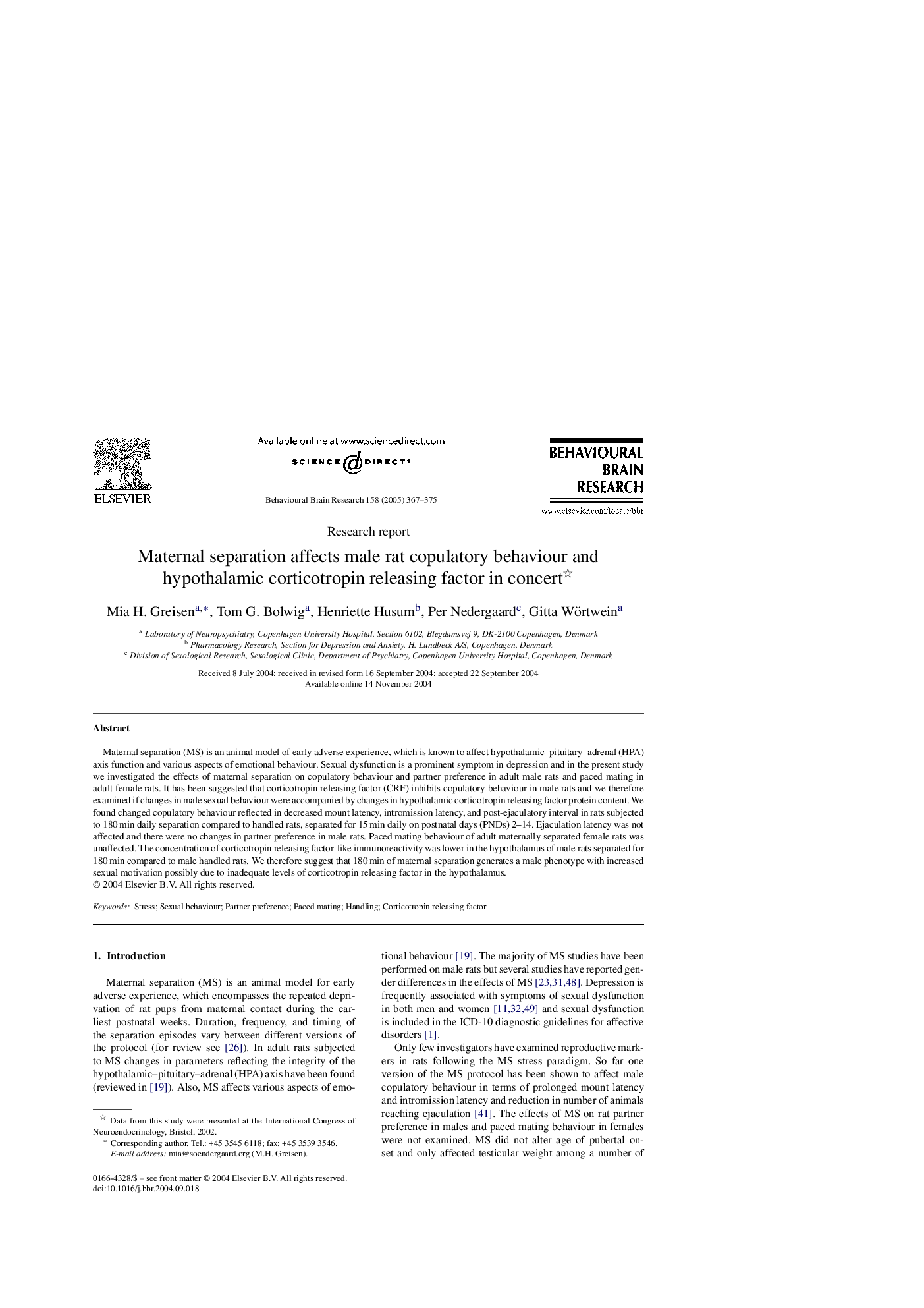| Article ID | Journal | Published Year | Pages | File Type |
|---|---|---|---|---|
| 9406803 | Behavioural Brain Research | 2005 | 9 Pages |
Abstract
Maternal separation (MS) is an animal model of early adverse experience, which is known to affect hypothalamic-pituitary-adrenal (HPA) axis function and various aspects of emotional behaviour. Sexual dysfunction is a prominent symptom in depression and in the present study we investigated the effects of maternal separation on copulatory behaviour and partner preference in adult male rats and paced mating in adult female rats. It has been suggested that corticotropin releasing factor (CRF) inhibits copulatory behaviour in male rats and we therefore examined if changes in male sexual behaviour were accompanied by changes in hypothalamic corticotropin releasing factor protein content. We found changed copulatory behaviour reflected in decreased mount latency, intromission latency, and post-ejaculatory interval in rats subjected to 180Â min daily separation compared to handled rats, separated for 15Â min daily on postnatal days (PNDs) 2-14. Ejaculation latency was not affected and there were no changes in partner preference in male rats. Paced mating behaviour of adult maternally separated female rats was unaffected. The concentration of corticotropin releasing factor-like immunoreactivity was lower in the hypothalamus of male rats separated for 180Â min compared to male handled rats. We therefore suggest that 180Â min of maternal separation generates a male phenotype with increased sexual motivation possibly due to inadequate levels of corticotropin releasing factor in the hypothalamus.
Related Topics
Life Sciences
Neuroscience
Behavioral Neuroscience
Authors
Mia H. Greisen, Tom G. Bolwig, Henriette Husum, Per Nedergaard, Gitta Wörtwein,
